Gout & Alcohol: Does Alcohol Use Affect Gout?
As a gout sufferer, you’ll know how painful it can be when you get a flare up.
If you like a drink, you might be wondering if alcohol is to blame for your sore and swollen joints.
Although the research on alcoholic beverages and gout is mixed, the NHS does cite drinking alcohol as a risk factor for gout.[1]
What is Exactly is Gout?

Gout is a particular type of inflammatory arthritis. It causes sudden intense pain and swollen joints, often in your big toe or lower limbs.
These flare-ups can last one to two weeks before going away.
Gout happens when the natural levels uric acid in your body build up too much, and turn into urate crystals.
Although many people with high serum urate levels don’t develop gout, it’s a key risk factor for the condition.[2]
How Bad is Gout?

It’s possible to live symptom-free with gout, but an attack can be quite painful.
While gout flare ups can be uncomfortable, they’re not dangerous.
If you experience frequent gout attacks over a long time without treatment, it can lead to serious complications, including:
- Joint damage, causing pain and stiffness
- The development of tophi, which are hard lumps under the skin, typically on the ears, fingers, or elbows. These can be painful and interfere with daily activities
- Kidney stones, which can occur due to excess uric acid
- In rare cases, chronic arthritis may develop, leading to long-term joint issues
Early treatment can help prevent these complications from happening.
How Do I Know if I Have Gout?
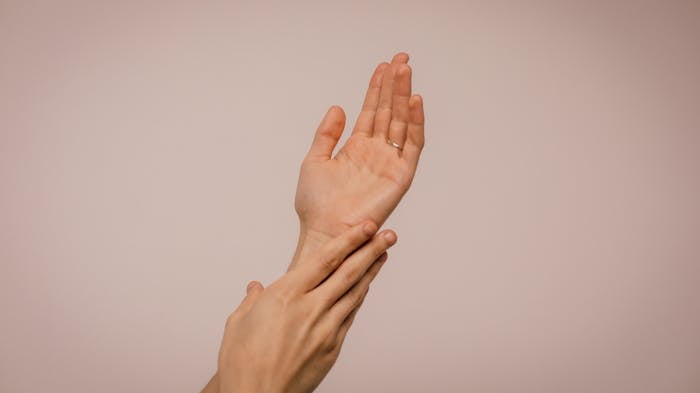
Gout is easy to spot once you know the signs.
The NHS advises the following information:
What are the Signs of Gout?
The symptoms of gout include:
- A sudden onset of intense joint pain: This usually affects your big toe, but could appear in the joints in your feet, ankles, hands, wrists, elbows, or knees
- Puffy, warm to the touch, flushed skin around the affected joint: The redness might be less obvious if you have darker skin
When Should I See a GP?
Make an appointment with your doctor if:
- It’s the first time you’ve had these symptoms
- You already have gout but your usual medications aren’t working
How Long Can a Gout Attack Last For?

A gout attack can last from 1 to 2 weeks. If you get treatment, you can reduce the amount of time the attack lasts.
However, ignoring gout could lead to future attacks lasting longer and might even cause permanent damage to your joints.
When Should I Seek Medical Help?
- If you suddenly develop severe joint pain and your joint begins to swell
- If you also feel feverish, with a high temperature
- If you’re feeling nauseous or are struggling to eat
- Your symptoms continue to get worse
These signs could mean that you have a joint infection. Infections require immediate medical attention, so don’t wait to get help.
Call NHS 111 for medical advice.
What Happens During a GP Appointment For Gout?

Your GP will likely want to:
- Ask about your diet and alcohol consumption if you’re showing signs of gout
- Perform a blood test to check your uric acid levels. High uric acid can cause crystals to form in your joints, leading to gout
- If the results aren’t clear, your GP may refer you to a specialist called a rheumatologist for more tests. These tests could involve taking a sample of fluid from your joint, or arranging a scan to investigate further
How is Gout Treated?

Gout is treated in many ways. From preventing symptoms to tackling a flare up, there are many medicines and techniques to try.
How Do I Treat a Gout Flare-Up?
Flare ups are usually treated with:
- Non-steroidal anti-inflammatory drugs (NSAIDs), such as ibuprofen
- Steroids (if the swelling and pain don’t improve, either as tablets or an injection)
How Can I Prevent Future Gout Attacks?
Gout can pop up every few months or even years. The chances of it coming back increase if it’s not properly managed.
If you’re having frequent flare-ups or you have high uric acid levels, your doctor may prescribe you some medication.
It’s really important to take uric acid-lowering medicine as often as prescribed, even if you’re not experiencing any symptoms.
Eating a healthy diet and drinking lots of water can prevent recurrent gout attacks.
What Can I Do to Ease a Gout Attack?

During an attack, try to:
- Take your uric acid-lowering medication as soon as possible – it should start to ease symptoms within two days
- Rest and elevate the affected limb (eg. sit with your leg up on a stool)
- Apply an ice pack (or a bag of frozen peas wrapped in a towel) to your joint for 20 minutes
- Drink plenty of water – unless your doctor says otherwise
- Avoid pressure – try not to put heavy bedding etc. on the joint
What Should I Avoid During a Gout Flare Up?
Don’t put weight or pressure on the area, as this can make the pain worse.
Who is at Risk of Gout?

Gout develops when there is too much uric acid in your blood, which leads to the formation of painful crystals in your joints.
It can run in families, so if your family have a history of gout, you may be more likely to develop it too.[3]
You may be more prone to gout if you’re:
- Overweight
- Drinking alcohol a lot
- Post-menopausal
- Taking certain medicines, such as diuretics or blood pressure tablets
- Have other health conditions like high blood pressure, high cholesterol levels, kidney disease, osteoarthritis, or diabetes
- Have recently undergone surgery or suffered a joint injury
What Can Cause a Gout Attack?

Certain triggers can bring on a gout attack, including:
- Having an illness that causes a fever
- Drinking excessive alcohol or eating a heavy, fatty meal
- Becoming dehydrated
- Injuring a joint
- Taking certain medications
If you feel an attack coming on, it’s important to get treatment quickly to manage the symptoms.
How Can I Prevent Future Gout Attacks?

Making a few lifestyle changes can help lower the risk of gout coming back.
What you can do:
- Aim to lose weight gradually if you’re overweight – but avoid crash diets
- Follow a healthy diet – your GP might suggest foods to eat or limit
- Have a few alcohol-free days each week, and try to stick to no more than 14 units of alcohol per week
- Drink plenty of water to avoid dehydration
- Exercise regularly, but avoid overly intense activities that might put too much strain on your joints
- Consider quitting smoking, as it can have a positive effect on your overall health
- Ask your GP about taking vitamin C supplements
Things to avoid:
- Cut down on sugary drinks and snacks
- Reduce your intake of fatty foods[4]
How Does Alcohol Affect Gout?

Alcohol can significantly affect gout, especially if you’re prone to flare-ups. It raises uric acid levels in your blood, leading to painful gout attacks.
Here’s how alcohol impacts gout and why certain alcoholic beverages might be worse than others.
Alcohol and Uric Acid
Drinking alcohol increases uric acid in your blood. Uric acid forms when your body breaks down purines, found in many foods and drinks, including alcohol.[5]
Normally, your kidneys filter out the excess, but alcohol slows this process, leading to a build-up. This extra uric acid forms crystals in your joints, causing pain and swelling.
For example, after heavy drinking, your uric acid levels spike, raising the chances of a gout flare-up.
Alcohol and Dehydration

Alcohol causes dehydration[6], worsening gout symptoms. It has a diuretic effect, causing your body to lose more water.
Dehydration thickens your blood, making it harder for your kidneys to flush out uric acid, increasing the chance of a flare-up.
If you drink alcohol and don’t stay hydrated, you increase the risk of a gout attack, as both your uric acid levels will rise, and dehydration will worsen.
Types of Alcohol and Gout
Different types of alcohol may impact gout differently.
Some studies show that the type of alcohol you drink doesn’t make a difference.[7]
Beer and Gout
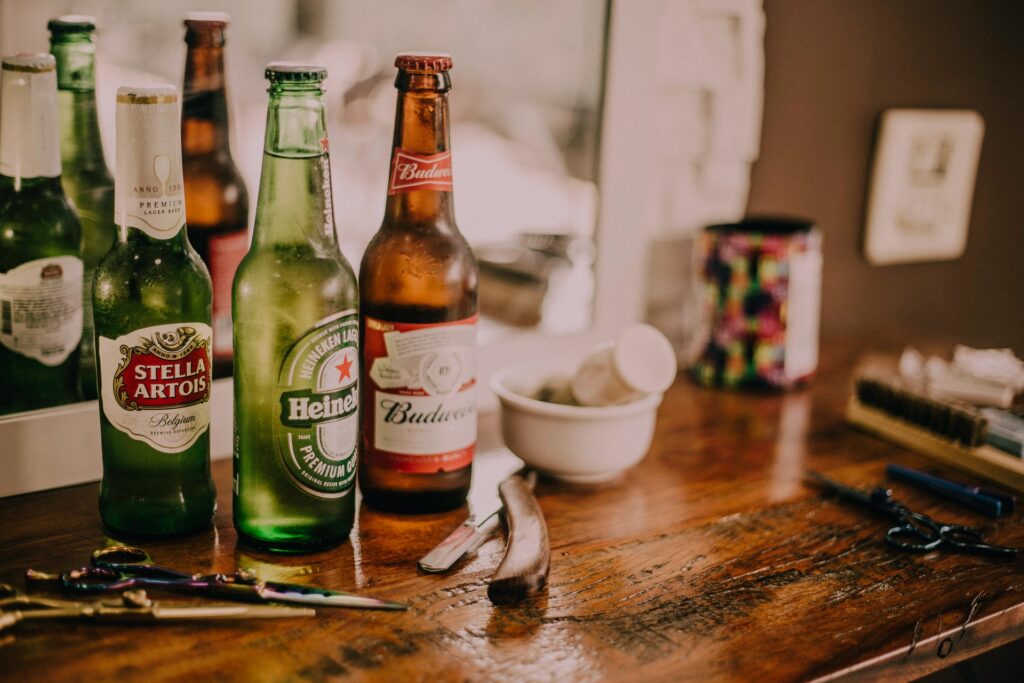
Beer is particularly bad for gout due to its high purine content.
Studies show that people who drink two or more beers daily are at a much higher risk of gout attacks compared to non-drinkers.
Wine and Gout
Wine contains fewer purines than beer, but it can still raise uric acid levels.
Regular wine consumption may still trigger gout in some people.
Some studies suggest daily wine drinkers face a similar gout risk as beer drinkers.
Spirits and Gout
Spirits like whisky and vodka don’t contain purines, but they still increase uric acid and cause dehydration.
While some people tolerate spirits better than beer, heavy or binge drinking can still trigger gout flare-ups.[8]
How Much Alcohol is Safe for Gout Sufferers?
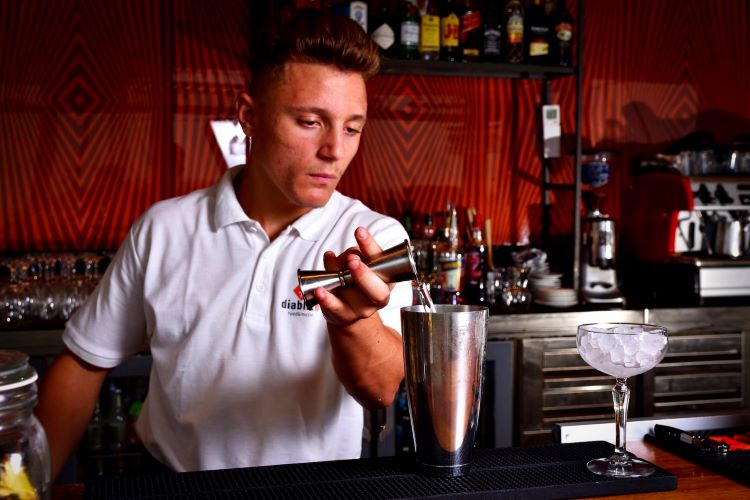
If you have gout, alcohol can be risky as it increases uric acid levels, leading to painful flare-ups. Here’s a closer look at how much is safe and what you should keep in mind.
Moderation is Key
Moderation is crucial for gout sufferers. Drinking too much alcohol, especially beer, raises uric acid levels and can trigger attacks.
Research shows heavy consumption significantly increases the risk of flare-ups.
However, some people may tolerate occasional drinks, like a single glass of wine at dinner, without immediate issues.
The key is avoiding binge drinking, which causes a sudden spike in uric acid.
Low-Risk Alcohol Consumption
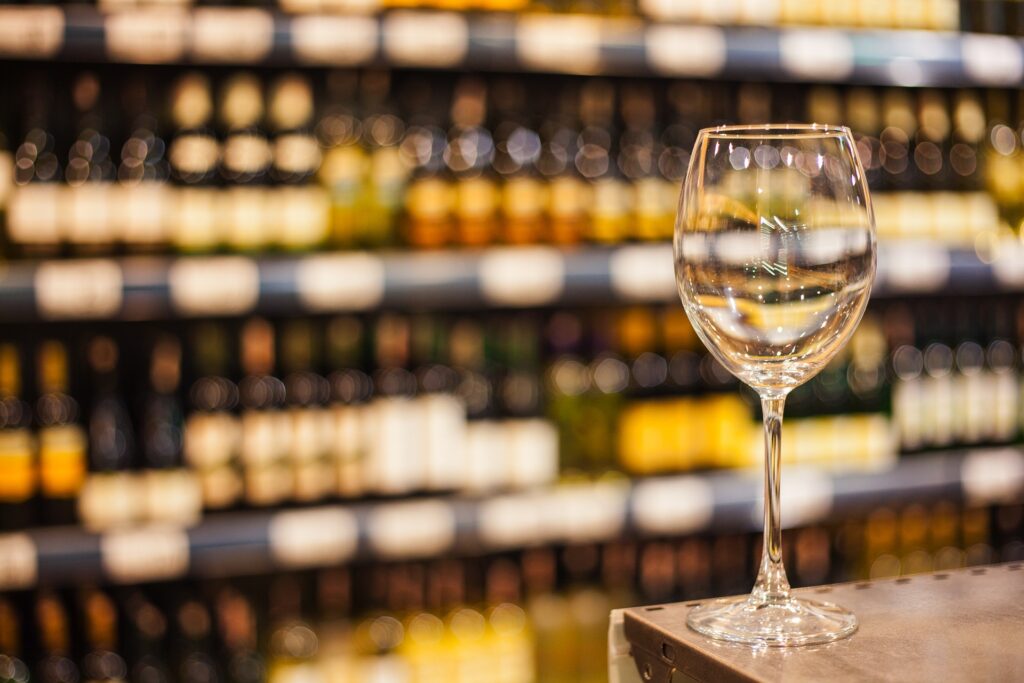
The NHS recommends no more than 14 units of alcohol a week. For gout sufferers, it’s important to spread these units out over several days rather than consuming them all at once.
Common alcoholic beverages amount to the following units:
- A pint of beer: 2-3 units
- A small glass of wine: 1.5 units
- A shot of spirits: 1 unit[9]
Drinking small amounts and having alcohol-free days can help lower the risk of flare-ups.
Individual Tolerance
Everyone reacts differently to alcohol. Some people may have a drink without problems, while others could experience an attack after just one beer.
For example, one person might handle a glass of wine, but others could wake up with joint pain after drinking the same amount.
It’s essential to learn how your body responds and adjust your intake accordingly. For some, avoiding alcohol entirely might be the safest option.
Alcohol and Gout Medications: What You Need to Know
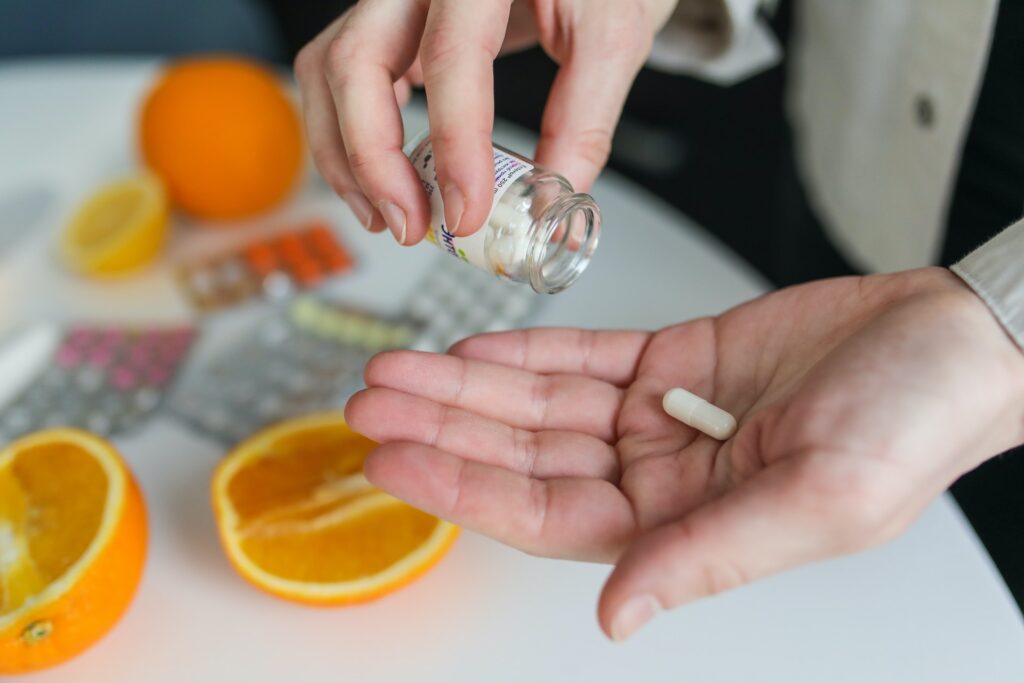
If you’re managing gout with allopurinol or colchicine, you might wonder how alcohol fits in.
While these medications help control gout, alcohol can reduce their effectiveness and increase side effects. Here’s what you need to know.
How Does Gout Medication and Alcohol Interact?
Allopurinol lowers uric acid to prevent gout attacks, but alcohol, especially beer and spirits, raises uric acid levels. This means alcohol can lower allopurinol’s effectiveness.
For example, if you’re managing gout well with allopurinol but binge drink, you risk a flare-up.
This is because alcohol raises uric acid, which will make your medicine not work as well as it should.[10]
Colchicine, used during gout attacks, isn’t generally affected by alcohol.
However, alcohol dehydrates you, worsening gout symptoms, making it harder for colchicine to relieve your inflammation.
So drinking during an attack could prolong recovery.[11]
What are the Side Effects of Mixing Alcohol with Gout Treatments?

Both medications have side effects that alcohol can make worse. Allopurinol can cause nausea, dizziness, and liver problems.
Drinking alcohol regularly puts extra strain on your liver, causing a higher risk of liver damage.
Drinking daily while on allopurinol could worsen fatigue (tiredness) and liver strain over time.[12]
In extreme situations, Colchicine can cause stomach issues like diarrhoea or nausea.[13]
Alcohol also irritates the stomach, making these symptoms worse.
So if you drink beer while taking colchicine, you might experience more severe stomach upset.
Adding NSAIDs (like ibuprofen) into the mix increases your risk of getting ulcers or stomach bleeding.
How Can I Prevent Gout Attacks? Diet, Alcohol, and Lifestyle Tips
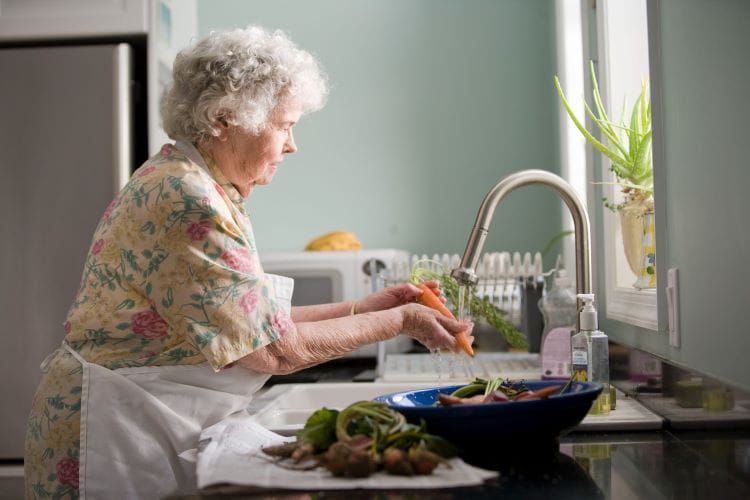
Gout can be managed with smart lifestyle choices. By focusing on your diet, hydration, exercise, and limiting alcohol, you can significantly reduce the chances of painful flare-ups.
The UK Gout Society recommends the following tips and tricks:
Diet and Gout Prevention
A low-purine diet is key to preventing gout. Purines, found in certain foods, break down into uric acid, which can trigger gout attacks.
To manage gout, avoid:
- Red meats (beef, lamb, pork)
- Organ meats (liver, kidneys)
- Shellfish (shrimp, lobster)
- Beer and spirits, which raise uric acid levels
- Sugary drinks like fizzy drinks and sodas
Eat more:
- Fruits and vegetables, particularly cherries, which have been shown to reduce uric acid
- Low-fat dairy and whole grains, which are low in purines and promote overall health
Staying Hydrated

Drinking water helps your body flush out uric acid through urine, reducing the risk of a flare-up. Aim for at least 8 glasses of water a day.
Dehydration can trigger gout attacks, so staying hydrated is essential, especially after exercise or on hot days.
Exercise and Weight Management
Maintaining a healthy weight can lower uric acid production. Excess weight puts more stress on your joints, increasing gout risk.
Regular low-impact exercises like walking or swimming help you manage weight and improve joint health.
Try to exercise for 30 minutes a day and avoid high-impact activities like running, which could strain your joints.
Limit Alcohol Consumption
Alcohol, particularly beer and spirits, raises uric acid and dehydrates the body, increasing gout risk. Stick to no more than 14 units of alcohol per week, as recommended in the UK.
Spread alcohol consumption out, have alcohol-free days, and opt for wine if you do drink, as it doesn’t irritate gout symptoms as much.
Supplements and Natural Remedies
Cherry extract and vitamin C supplements may help lower uric acid levels.
Cherry extract has been shown to reduce the frequency of attacks, and vitamin C might lower uric acid levels.[14]
However, always consult your doctor before trying new supplements.
What Does the Research Say About Alcohol and Gout?

Research on gout and alcohol is mixed.
Overall, the evidence suggests that alcohol is bad for gout sufferers.
Scientific Research on Gout and Alcohol
A major study followed over 47,000 men for 12 years, finding that regular alcohol consumption significantly increased the risk of gout.[15]
Debunking Myths: Alcohol and Gout
One common myth is that only beer causes gout. While beer is the worst offender, research shows that all alcohol can trigger attacks.
Wine and spirits also raise uric acid and should be consumed in moderation.
Similarly, low-alcohol beer may seem like a better option, but it still contains purines, meaning the risk remains.
What if I Have Alcohol Use Disorder?

If you have Alcohol Use Disorder (AUD) and gout, managing both conditions can be challenging.
Continued alcohol use can lead to more frequent and severe gout flare-ups, making it harder to manage.
Treatment for Alcoholism
Treating alcoholism is crucial for managing both conditions.
Inpatient and outpatient rehab programs offer structured support, while counselling and support groups like Alcoholics Anonymous (AA) can provide long-term help.
Medication-assisted treatment (MAT) may also be recommended to reduce cravings and ease withdrawal symptoms.
By addressing alcoholism, you can help lower your risk of recurring gout attacks and improve your overall health.
Consult a healthcare provider for personalised guidance on treatment options.
FAQs: Common Questions About Alcohol and Gout

Here are answers to common questions about how alcohol impacts gout.
Does Quitting Alcohol Cure Gout?
Quitting alcohol won’t cure gout, but it can significantly reduce the number of attacks.
Alcohol, especially beer and spirits, raises uric acid levels, which leads to gout. For example, someone who drinks beer regularly may see fewer flare-ups after quitting.
However, gout is also influenced by factors like diet and genetics, so cutting alcohol helps but doesn’t eliminate the risk entirely.
Is Red Wine Better Than Beer for Gout?
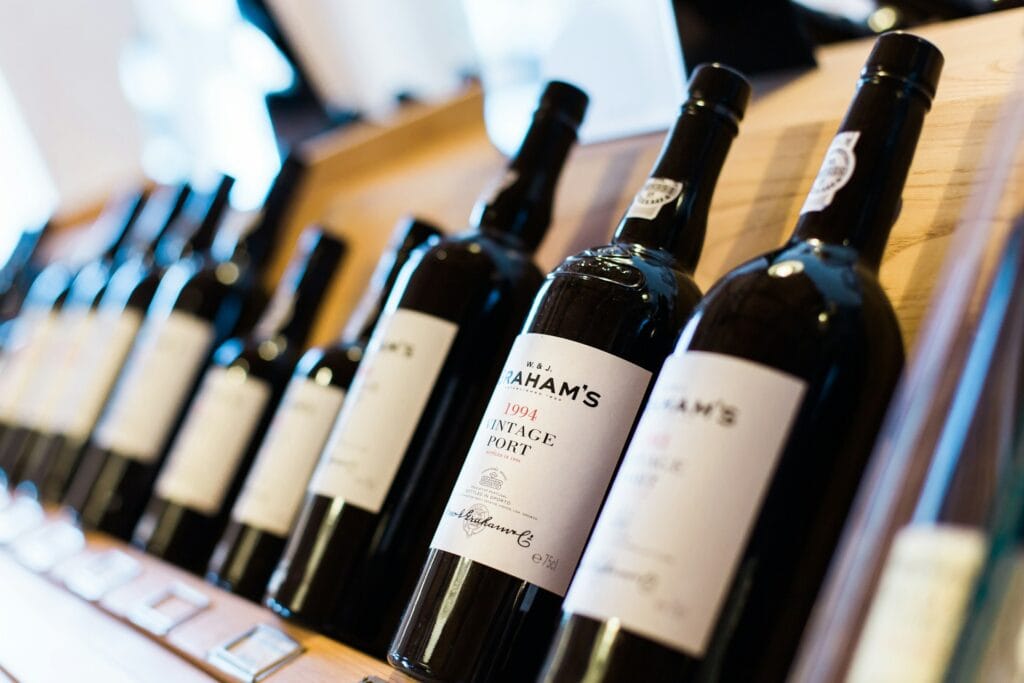
Yes, red wine is generally safer than beer, but it’s not risk-free. Beer contains high purine levels, which directly increase uric acid.
For example, drinking two pints of beer regularly is more likely to cause an attack.
Wine doesn’t have purines, but drinking multiple glasses regularly can still raise uric acid levels.
One glass of wine occasionally is less risky, but moderation is key.
Can I Drink Alcohol if I’m Taking Medication for Gout?
It’s best to avoid or limit alcohol when taking gout medication like allopurinol or colchicine.
Alcohol can reduce the effectiveness of these drugs. For instance, allopurinol lowers uric acid, but alcohol raises it, making the drug less effective.
Alcohol can also worsen side effects like nausea or liver problems, especially if you’re on other medications.
What are the Safest Alcoholic Drinks for People with Gout?
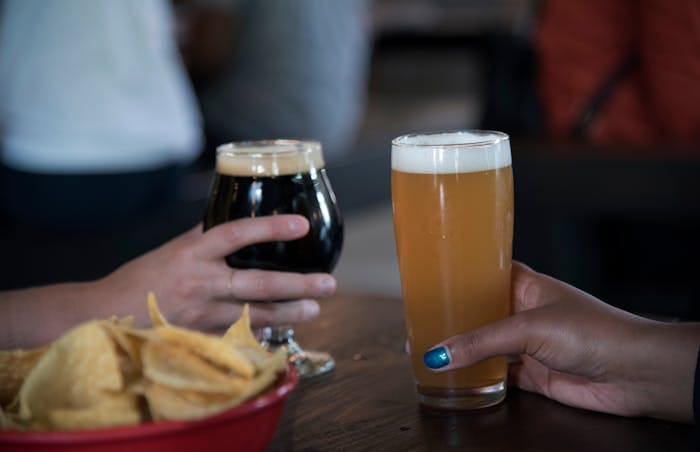
There’s no completely safe alcohol for gout, but wine is generally less risky than beer or spirits.
Beer contains purines, directly raising uric acid. Spirits like vodka and whisky don’t have purines but can still dehydrate you and raise uric acid.
A single glass of wine occasionally is usually the safest choice. Consider having alcohol-free days to reduce your risk.
How Much Alcohol is Too Much for Gout Sufferers?
Even moderate alcohol consumption can trigger gout.
For gout sufferers, it’s best to limit alcohol to 14 units per week (about six pints of beer or ten small glasses of wine) and spread the drinks out.
Avoid binge drinking, as it increases the likelihood of a gout attack.
Conclusion: Alcohol’s Role in Gout Management

Alcohol plays a significant role in triggering gout, especially beer, which is high in purines. Excessive drinking raises uric acid levels, making gout attacks more likely.
To manage gout effectively, it’s important to focus on moderation. Reducing alcohol intake, particularly beer and spirits, can lower your risk of attacks.
Adding alcohol-free days into your week and making mindful choices about what and how much you drink can make a big difference.
In addition to limiting alcohol, managing other lifestyle factors like diet, hydration, and maintaining a healthy weight can also help prevent gout flare-ups.
For personalised advice, it’s essential to consult your doctor or healthcare provider.
References
[1] https://www.nhs.uk/conditions/gout/
[4] https://www.nhs.uk/conditions/gout/
[5] https://www.ncbi.nlm.nih.gov/pmc/articles/PMC3991555/
[6] https://www.nhsinform.scot/illnesses-and-conditions/nutritional/dehydration/
[10] https://www.nhs.uk/medicines/allopurinol/common-questions-about-allopurinol/
[11] https://www.nhs.uk/medicines/colchicine/common-questions-about-colchicine/
[12] https://www.nhs.uk/medicines/allopurinol/side-effects-of-allopurinol/
[13] https://www.nhs.uk/medicines/colchicine/side-effects-of-colchicine/
[14] https://www.ukgoutsociety.org/docs/goutsociety-allaboutgoutanddiet-0113.pdf




